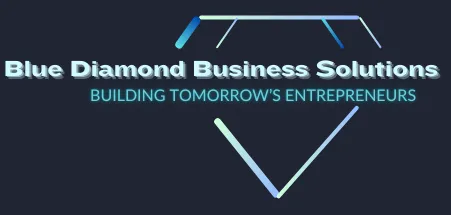Insights and Tips from the Experts
Stay Updated with the Latest Trends and Best Practices
Your Trusted Partner for Sustainable Business Growth
Welcome to Thrivepoint Consulting Group BLOG!
Here, you'll find valuable insights, tips, and best practices to help your business succeed. Our experts share their knowledge on a variety of topics, including legal compliance, financial planning, marketing strategies, and more.
Blog
Stay informed and gain the knowledge you need to thrive. Subscribe to our blog and never miss an update!

9 Game-Changing Loan Options for Startups with Less-Than-Perfect Credit
"You don't need to be rich to start a business, but you need to start a business to become rich." - – Richard Branson
Introduction:
Starting a business is challenging, especially when securing the necessary funding. For startups with less-than-perfect credit, the traditional loan-securing routes can feel like an uphill battle. However, the power of business credit offers a way to unlock loans without needing a personal guarantee.

This article explores nine game-changing loan options for startups with limited or less-than-perfect credit, helping business owners understand the tradeoffs and challenges of each option.👊
1. Microloans for Startups
Microloans, typically offered by nonprofit organizations or community lenders, are a beacon of hope for startups with limited credit history. Ranging from $ 500 to $ 50,000, these loans offer easier approval processes, making them an ideal choice for such startups. However, it's crucial to balance the need for immediate funding with the potential long-term costs, such as higher interest rates.
2. Business Credit Cards
Business credit cards can be a strategic tool for startups needing to manage cash flow. They allow businesses to build credit while covering everyday expenses. However, it's important to use them strategically and pay off the balance monthly to avoid unnecessary debt, as high interest rates can quickly accumulate.
3. Equipment Financing
For startups needing to purchase machinery or technology, equipment financing is an excellent option. The equipment is collateral, making it easier to secure a loan even with less-than-perfect credit. However, this approach ties up capital in assets, limiting flexibility in other business areas.
4. Invoice Financing
Invoice financing allows startups to borrow against their outstanding invoices, providing immediate cash flow. While this option helps maintain liquidity, it can be costly as lenders may charge high fees for the service. Additionally, businesses must be prepared for the impact on customer relationships when a third-party lender becomes involved in collections.
5. Merchant Cash Advances
Merchant cash advances provide businesses with a lump sum of cash in exchange for a percentage of future sales. This option is appealing for startups with fluctuating revenue, but the cost of capital can be significantly higher than other forms of financing. It's crucial to weigh the ease of access against the potential financial strain.
6. Crowdfunding
Crowdfunding platforms like Kickstarter or GoFundMe allow startups to raise money from many small investors. This option provides access to funds without requiring credit checks or personal guarantees. However, the success of crowdfunding campaigns depends heavily on marketing efforts and public interest, which can be unpredictable.
7. Peer-to-Peer Lending
Peer-to-peer (P2P) lending platforms connect startups with individual investors willing to fund their ventures. This alternative to traditional bank loans often comes with more flexible terms. However, the interest rates vary widely, and startups must present a compelling business case to attract investors.
8. Community Development Financial Institutions (CDFIs)
CDFIs are nonprofit organizations that provide financing to underserved communities. Startups with less-than-perfect credit may find CDFIs more willing to offer loans than traditional banks. The tradeoff is that CDFI loans may come with stricter terms and conditions, so it's essential to understand the full scope of the agreement.
9. SBA Loans
The U.S. Small Business Administration (SBA) offers loan programs to support small businesses. While SBA loans can be challenging to qualify for, they offer favorable terms and lower interest rates than other options. Startups with limited credit history should explore SBA microloans or the SBA 7(a) loan program, which offers more lenient requirements.
Balancing the Tradeoffs
Choosing the right loan option involves balancing various factors such as interest rates, repayment terms, and accessibility. Startups must carefully consider the long-term impact of each financing option, as some may offer quick access to funds but at a higher cost. Others may provide favorable terms but require more stringent qualifications.
The tradeoffs often come down to immediate needs versus long-term sustainability. Startups should assess their financial situation, growth potential, and the specific requirements of their industry before deciding on a funding option. It's essential to consider the availability of funds and the potential impact on cash flow, business operations, and credit health.
Conclusion
The power of business credit is undeniable when unlocking loans without a personal guarantee. By exploring alternative financing options, startups with less-than-perfect credit can still secure the funding needed to grow and succeed. However, it's crucial to carefully evaluate the tradeoffs involved in each option. This evaluation should always be guided by the long-term goals of the business, ensuring that the chosen path is aligned with these goals.
Ready to take your startup to the next level? Visit 2ezbizcredit to discover how we can help you secure the funding you need without a personal guarantee. Get started today and unlock your business's true potential! 🚀
Contact Details:
Website: www.2ezbizcredit.com
Email: [email protected]
Phone: (833)-995-2110
Address: 2909 E Arkansas Lane Suite C, Arlington, TX 76010
Social Media:
Facebook: 2ezbizcredit Facebook
LinkedIn: 2ezbizcredit LinkedIn
Twitter: 2ezbizcredit Twitter
CASE STUDIES
Popular Lessons
Growth up Business with Brand
Branding
12 Lessons
271 Reviews
6 Weeks
Growth up Business with Brand
Branding
12 Lessons
271 Reviews
6 Weeks
Growth up Business with Brand
Branding
12 Lessons
271 Reviews
6 Weeks
